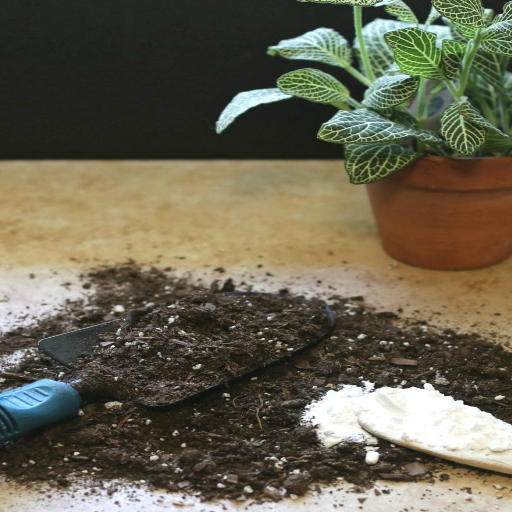Gardening enthusiasts are always on the lookout for simple, cost-effective ways to enhance plant health and yield. Enter Epsom salt and baking soda—two household staples with remarkable benefits for your garden. Whether you’re seeking lush foliage, vibrant blooms, or improved pest control, these versatile substances might just be the solution you’ve been searching for. But how exactly do they work, and what makes them so effective? In this article, we’ll explore the science-backed advantages of using Epsom salt and baking soda in your gardening routine, helping you unlock their full potential to achieve a thriving, thriving garden.
How Can Epsom Salt Benefit Your Plant?
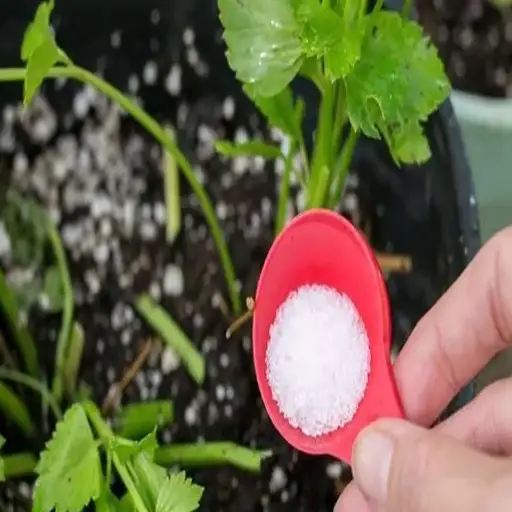
Understanding the Role of Magnesium
This nutrient is essential for a plant to stay healthy, basically due to the central role it plays in photosynthesis. Magnesium is required in chlorophyll, the molecule that endows plants with the ability to capture sunlight and convert it into chemical energy. When plants are deficient in magnesium, they cannot synthesize sufficient quantities of chlorophyll. As a consequence, their leaves become yellowish (chlorosis) instead of dark green and tend to remain small. This deficiency directly upon an individual’s atrocities blossoming or flowering.
In addition, magnesium assists in activating enzymes, which promote diverse physiological functions, including nutrient uptake and protein synthesis in plants. It combines in function with some other essential nutrients to increase the uptake of phosphorus and nitrogen by the soil. This helps plants to grow appropriately and develop adequately when supported by a nutrient-poor or heavily degraded soil.
Epsom salt is a fast and easy source of magnesium mineral. Applied properly to the soil or by foliar spray, it can simultaneously resolve any magnesium deficiencies. Testing the soil beforehand is very important to avoid overdosing on any magnesium and to be sure that magnesium is indeed the element that needs supplementation. By following a proper application of Epsom salt, the gardener is able to ensure healthy plants and an optimized photosynthesis process, which ultimately benefits in developing a productive and lively garden.
Enhancing Nutrient Uptake in Soil
Improving nutrient uptake in soil begins with an investigation into its nature and conditions. The complete soil test is essential to determine the pH, any deficiencies, and organic matter. Soil pH is important for nutrients; being in a neutral range between 6.0 and 7.0 will assure maximum availability of most nutrients. Liming or sulfur application can be made to adjust pH and produce a favorable condition for plant growth.
Soil organic matter acts as a mechanism in nutrient uptake. Organic amendments like compost, manure, or cover cropping change soil structure and enhance nutrient retention and release. Such amendments and organic matter also build beneficial microbial activities, which help impulse nutrients from their complex states to forms available for plant absorption.
Finally, crop rotation, the benefits of mycorrhizal fungi, and avoidance of over-fertilization help to maintain soil health in the long run. Over-fertilization leads to nutrient imbalance and leaching, which leads to lowered fertility status with time. Integrating these methods would help ensure sustained nutrient presence for proper plant growth for both gardeners and agriculturalists.
Addressing Nutrient Deficiencies in Tomato Plants
Deficiency in nutrients for the tomato can drastically distort growth, fruiting, and health. Keeping the plants well-maintained necessitates the proper identification of nutrient deficiency and its elimination. The general nutrient deficiencies in tomato are nitrogen, potassium, calcium, and magnesium, with different sets of symptoms.
Nitrogen deficiency can be seen by the yellowing of older leaves with stunted growth and very poor development of fruits. Treat by application of nitrogenous fertilizer like blood meal or urea in recommended doses. For a long-term practice, keep nitrogen available by adding well-rotted compost or manure into the soil before planting.
Potassium deficiency causes yellowing or browning starting from the edge of the leaves, along with spotting, sometimes curling of the foliage. It can cause a decrease in the quality of the fruits as well. Application of potassium-rich fertilizer like sulfate of potash or wood ash (depending upon soil pH), is sufficient to resolve this issue. Monitor potassium content continuously to keep this nutrient in good balance throughout the growth period of the plants.
Ca and Mg deficiencies appear as blossom end rot and interveinal chlorosis, respectively. To correct blossom end rot caused by Ca deficiency, calcium nitrate or gypsum can be applied to the soil. For magnesium deficiency, Epsom salt (magnesium sulfate) applied either as a foliar spray or soil amendment is effective. Maintaining consistent soil moisture and an adequate soil pH between 6.0 and 6.8 further facilitates nutrient uptake.
Regular soil testing is necessary for keeping track of nutrient levels and preventing overdoses or deficiencies. Early detection of a particular deficiency and its cure ensures that tomato plants are well supplied with nutrients for vigorous growth and higher yields.
What Are the Uses of Baking Soda in the Garden?
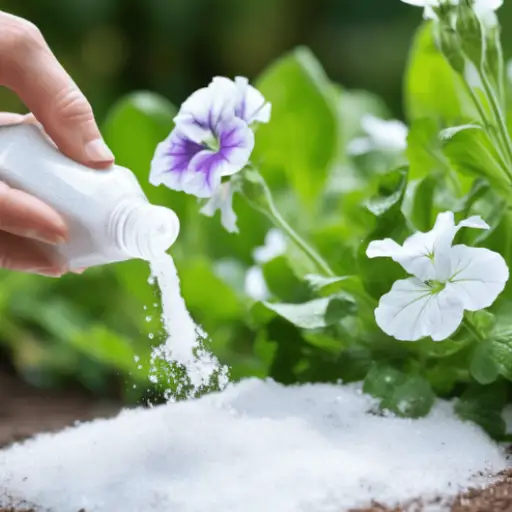
Controlling Powdery Mildew and Other Fungal Diseases
Being a generic term referring to sodium bicarbonate, baking soda serves as an effective and environmentally conscious solution in combating powdery mildew and other diseases caused by fungi. The mode of action of sodium bicarbonate is thought to involve the alteration of the pH on the surface of the plant leaves, thereby creating unfavorable conditions for fungal proliferation. Powdery mildew is an ever-present fungal pathogen affecting a wide array of plants, usually appearing as a white powdery substance on leaves, stems, and fruits. The baking soda solution, when combined with water and a surfactant, such as horticultural oil or liquid soap, interferes with the fungal growth cycle and prevents both an increase in severity and spread of infection; this system is hence of great importance to organic gardeners seeking to avoid synthetic fungicides.
Studies suggest that a standard baking soda spray solution contains one tablespoon of baking soda, one tablespoon of horticultural oil, and one gallon of water. This solution might be useful in controlling the incipient stages of fungal infection only if applied before or at the very onset of infection stimuli. Applications should be elicited with utmost care every seven to 10 days, depending upon levels of humidity and plant susceptibility thereto. However, a patch test of the solution is highly recommended before treating the whole plant, since some might show sensitivity to baking soda formulations that might cause leaf burn.
Baking soda is not a panacea, but it functions as a vital part within the casing of an integrated pest management (IPM) approach. Working hand in hand with cleaning up away from improper pruning work for better airflow, avoiding overhead watering, and allowing proper plant spacing to diminish fungal spore propagation, baking soda treatments can certainly be pitted against cultural practices, such as removing infected plant materials, thereby reducing potential sources for reinfection. Continuous observation and a multilayered approach will thus keep fungal pathogens like powdery mildew and downy mildew at bay, resulting in healthier gardens and sustainably growing plants.
Using Baking Soda to Alter Soil pH
Baking soda refers to a commonly available substance in the household and can be applied to modify soil pH under some agricultural or gardening actions. Its main application as an alkaline reagent is to increase the pH of acidic soils and thus make them suitable for some plant species that prefer moderately alkaline soils. The process is the neutralization effect of bicarbonates, where they react with hydrogen ions in the soil, thereby lessening acidity. Careful application and monitoring are essential to maintain a balanced pH and prevent detrimental effects on soil health or plant growth.
Baking soda applications must be sufficiently precise to avoid complicating the problems that may already be in the soil. A soil test must come first to identify the present pH, along with consideration of the soil’s buffering capacity. Agricultural specialists would rather err on the side of caution and recommend using an ultra-light treatment of sodium bicarbonate (approximately one to two tablespoons in a gallon of water) spread across a small test plot evenly. Too much could counterintuitively build up sodium capacity in the soil and affect water permeability, microbial action, or nutrient absorption. Additional importance is placed on not using it long-term or indiscriminately, as it hampers fertility and upsets ecological balance.
Scientific records and evidence emphasize how applications of baking soda would make the best temporal measure, instead of being forever relied upon in carrying out the task of pH management. While ongoing maintenance could be secured through baking soda treatments coupled with the implementation of broader soil health regimes, including lime, organic compost, or gypsum. The production of salinization would weigh down the use of baking soda over large-scale agriculture anyway, due to the high cost. For limited area gardening and experimental trials, baking soda remains worthwhile, provided that judicious use is applied while being continuously observed and tested.
Natural Pest Control with Baking Soda
Bicarbonate of soda has always been recognized as a good-working pest control in the household setting when needed. Depending on the circumstances, baking soda can be used as a safe and commonly available household item for pest solutions. The chemical properties of the baking soda are slightly alkaline, having a desiccating or drying effect. It interferes with the metabolic processes of some pests and causes fungal growth to cease. In mixtures with water, baking soda creates a surface application that targets pests such as aphids, spider mites, and whiteflies, in addition to powdery mildew production.
In integrated pest management (IPM), it will allow baking soda to play a role, provided it is mixed exactly right approximate ratio would be one teaspoon (roughly 5 grams) to one quart of water, since more than that may pose phytotoxicity to plant foliage. Studies suggest that the potency of baking soda may be enhanced when combined with other natural materials, such as neem oil or horticultural soap. Such combined action affects pests through different mechanisms to yield synergistic results in controlling infestations with no reliance on synthetic chemicals.
Baking soda should be used with caution in an environmentally friendly garden. It changes the alkalinity of soils due to overuse, which can harm soil health in the long term. As a result, it is best for small gardens, greenhouse environments, or as an additional application in larger settings. But more experimental studies and site-specific tests should be done to optimize its application and confirm its compatibility with various crop types and ecosystems.
How to Effectively Combine Epsom Salt and Baking Soda for Plants?
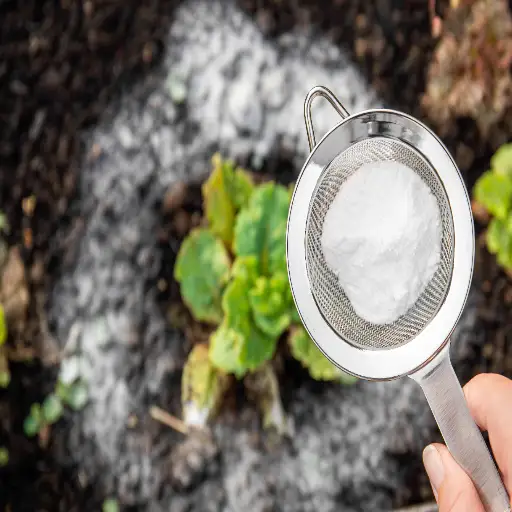
Creating the Right Mix for Soil Treatment
Getting the ephemeral balance right while mixing Epsom salt with baking soda for a soil treatment is most important for obtaining the desired result without having an undesired effect on the ecology. The generic recipe calls for dissolving 1 tablespoon of Epsom salt and 1 teaspoon of baking soda into one gallon of water to make the nutrient solution. Among other things, this mixture gives magnesium from Epsom salt, the key constituent required in chlorophyll formation, and bicarbonates from baking soda, which can act upon pH by curing any excessive acidity in soils.
For best efficacy, it is recommended to perform tests on the soil for existing pH and nutrient levels before proceeding with the application. For example, soils that are inherently high in magnesium or strongly alkaline may not register any positives for being treated with this solution and may worsen the condition of such soils. Application aside, excessive use of this mixture can upset the funky little microorganism balance in soils, further degrading soil quality on the land. Therefore, periodic testing of soil health, as well as complementary application of organic fertilizers, will improve the efficacy and sustainability of this treatment.
Remember that this method may work variably depending on various other factors, such as soil type, climatic situation, and crops’ needs. Controlled experiments can more concretely determine the extent of its effectiveness and sustainability, while regional results can provide evidence of its practical implementation.
Applying the Mixture to Enhance Plant Growth
Application timing, quantity, and technique are key aspects of fertilizing with any mixture to enhance plant growth. Initially, base the study on assessments of soil and crop demand; diagnostic tools to consider are soil nutrient testing and tissue analysis. Next, based on the test results of the soil and the crop, adjust the application rate adequately to apply just enough nutrients, thereby averting cases of over-fertilization and runoff of fertilizers.
The mixture is preferably evenly spread using mechanized spreaders in the case of a granular formula or by using sprayers for foliar application in the case of a liquid solution, depending on the mixture formulation. Its application must be synchronized with periods of peak plant uptake, which generally occur at crucial stages of plant development during germination, flowering, and fruiting. Furthermore, research publications support the integration of the application with irrigation systems like fertigation to promote absorption efficiency and minimize wastage.
Continuous monitoring must be continued after application to evaluate plant response and soil nutrient dynamics. With an accurate approach, modern precision agriculture-based tools, such as remote sensing and data modeling, can generate recommendation-based insights for increased implementation outcomes. Combining these tools with strict observance of agronomic procedures thus guarantees the consistent improvement of plant health and yield performance.
Using the Combination as a Fertilizer Amendment
Using combined amendments in agricultural methods has been implicated in processes that improve nutrient availability while simultaneously alleviating any form of limitations on soil structure and functionality. Usually, an inorganic fertilizer complementing the organic matter (compost or biochar) maintains a nutrient balance suitable for crop growth. If implemented correctly, research shows that such combinations can limit leaching of nutrients, augment microbial activity, and ensure sustainable growth of plants.
Modern integrated nutrient management disciplines place great emphasis on amendments used to counter soil deficiencies. For example, studies show that nitrogenous fertilizer compounded with biochar-well known for its capacity of cation exchange-enhances nitrogen retention and limits its losses through volatilization. In the same way, simulation results prove that the combination increased the efficacy of phosphorus applications that guaranteed long-term availability within the rhizosphere. The effectiveness of combined amendments is further enhanced by precision agriculture technologies, such as sensor-based soil monitoring and variable rate application.
Scaling-up will, however, need continual empirical assessment with field data guiding adjustments in application rates and strategy. Indeed, combining the old-school agronomic wisdom with modern analytics will empower farmers to improve soil health, cut environmental impact, and consistently secure high yields. Such a collective, data-informed application supports fertilizer amendments to make choices aligned with the needs of crops and ecosystems that constitute a blueprint for innovative agriculture.
Are There Any Precautions When Using Baking Soda and Epsom Salt?
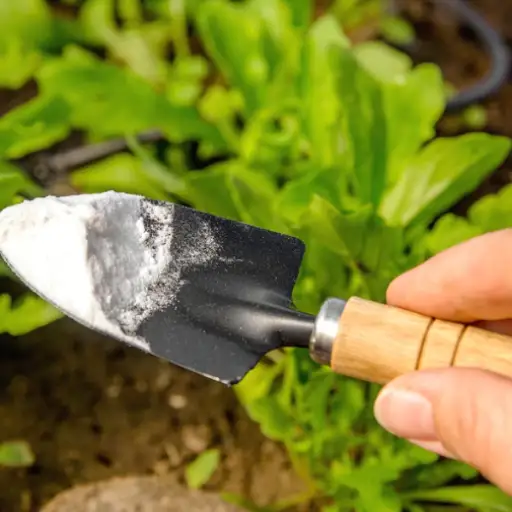
Understanding the Potentially Harmful Effects
These two substances are often employed in all sorts of usages and settings-in-household, health, and garden-liquefied through misuse into some adverse effect. While both substances may be considered safe chemicals in controlled settings, we should also bear in mind some of the adverse effects that may be linked to their application. Below are five considerations regarding their adverse, harmful effects:
- Effect on Soil pH Balance: Baking soda is also highly alkaline and, when used excessively in gardening, can negate the pH balance of soils. Possibly, most plants prefer an environment slightly acidic to neutral; however, such an imbalance may render the medium deficient in crucial nutrients or may impair the plant’s growth. Elevating environmental pH above 8.0, depending on edaphic factors, may predispose a soil to deficiencies of a few major micronutrients, viz, iron and manganese.
- Gastrointestinal Distress from Overdosage: Considerable amounts of baking soda taken over a long period as an antacid or for other uses may lead to serious gastrointestinal problems resulting in bloating, nauseating sensations, and gastric rupture in extreme scenarios etc. Studies conducted reveal that excess ingestion of sodium bicarbonate was also responsible for the alkalosis condition, leading to a dangerously raised pH level of blood.
- Magnesium Sulfate Toxicity: Since Epsom salt (magnesium sulfate) is considered a remedy for pain and as a magnesium supplement, it is possible to get magnesium toxicity through high-magnesium intake or prolonged exposure. Symptoms may show up as drowsiness, irregular heartbeat, or distressing dyspnea, especially in a patient who has an impairment of renal function, causing inability to excrete magnesium.
- Skin Irritation and Allergies: Epsom salt can cause withdrawal, irritation, or allergic reactions in sensitive persons when applied to the skin at high concentrations or for prolonged periods. Studies recommend maintaining adequate dilution of these salts when using them in a bath or scrub.
- Environmental Contamination: Improper dumping of baking soda and Epsom salts contributes to environmental degradation. When disposed of in large amounts into water bodies, they could disrupt aquatic ecosystems either through changes in the abiotic factors of the water or through creating an imbalance detrimental to the marine organisms.
Learning of these more serious issues brings home the fact that it is especially important to observe the suggested instructions and abide by safe use applications when using these substances so as to avert unwanted situations.
Why You Should Always Do a Soil Test
Soil testing is an important step in learning about and troubleshooting your soil-health status, be it for agricultural, gardening, or landscaping purposes. The test also analyzed anything from its chemical composition to pH level to nutrient profile, thereby furnishing crucial data for its subsequent amendment. Through this very process, soil tests can determine the levels of key macronutrients such as nitrogen (N), phosphorus (P), and potassium (K), thus guiding the users on the appropriate type and amount of fertilizer application to apply, and consequently preventing excessive application that may cause runoff and further environmental degradation from being realized.
Moreover, soil tests reveal any possibility of a secondary nutrient imbalance or deficiency (such as calcium or magnesium) or micronutrient imbalances or deficiencies (such as zinc and iron) that are crucial for plant health but are often overlooked. They can also identify harmful contaminants such as lead or arsenic, which are detrimental to human health and agricultural output. Testing procedures nowadays most likely involve spectrometry and chromatography methods, ensuring maximum reliability and meticulous reportage.
Therefore, when users align soil testing results with modern agricultural or horticultural recommendations, they can execute truly informed, data-driven solutions custom-made to the exact requirements of their immediate environment, thereby enhancing sustainability, economic value, and environmental care. It is these proactive measures that are not just worthy but essential for anyone intent on responsibly maximizing soil productivity.
The Importance of Moderation in Application
Agricultural input application should follow a moderation principle, respecting a fine balance between maximizing production and preserving environmental resources. Leaching of nutrients into groundwater, nitrates contaminating waters, and upset of soil microflora from fertilizers given excessively to plants are some of the issues. Some pesticide misuse kills all beneficial organisms that come into contact with it and makes the pest population resistant to them. However, adoption of a moderation-against-gross misuse approach provides civil conscientiousness to farmers and horticulturists to apply inputs to sensible levels, keeping ecological balance intact.
An application based on moderation would mean considering plant and soil needs rather than sticking to caveat emptor. Precision agriculture provides systems for the comprehensive monitoring of soils and crops and allows and supports decisions based on data. These systems often consist of sensors with an algorithm that calculates the exact quantity of inputs to use. For instance, variable rate technology (VRT) can precisely apply fertilizers and pesticides to the target area while avoiding over-application in some parts, thus keeping input costs for farmers low and the adverse effects on nearby ecosystems smaller.
This way, moderating the application leads to sustainability by focusing on saving resources and preventing wastage. Regulated irrigation techniques like drip irrigation provide water to the root zone directly, where plants can absorb it efficiently. This prevents waterlogging and runoff while conserving water resources, especially in water-scarce locations. Consequently, applying agrochemicals in a moderated manner based on data and environment-conscious approaches will lead to higher output and lower cost in the long term, strengthening food production systems for the natural resource system.
How to Make Your Plant Care Solutions with Epsom Salt and Baking Soda?
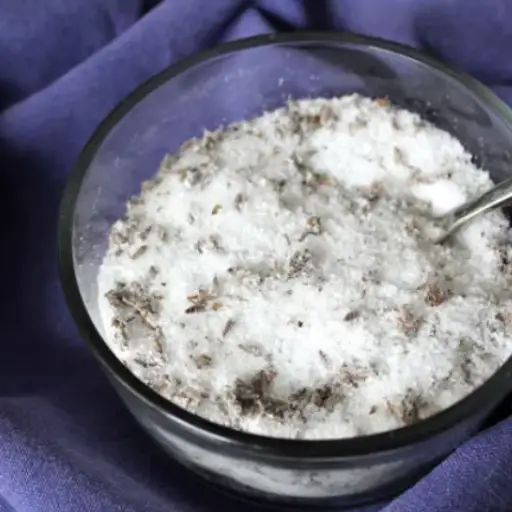
DIY Recipes for Homemade Plant Enhancements
- Solution for Green Foliage With Epsom Salt: Epsom salt, chemically known as magnesium sulfate, is essential for the formation of chlorophyll and is directly responsible for ensuring good health for the plants. To prepare the solution, dissolve 2 tablespoons of Epsom salt in 1 gallon of water. Use as a foliar spray or root drench every four to six weeks. Studies show it can correct magnesium and sulfur deficiencies in the soil, giving the foliage a nice green cast.
- Baking Soda Spray for Natural Fungicidal Defense: Baking soda cures fungal diseases like powdery mildew and black spot with sodium bicarbonate. Mix one teaspoon of baking soda in one quart of water with some drops of liquid detergent to bring out a fungicidal spray. Apply to the infected part every week. According to research, bicarbonate alters surface pH levels, which in turn become unsuitable for fungal development.
- Epsom Salt-Baking Soda Mixture for Soil Health Benefits: When provided for universal soil treatment, combine 1 tablespoon of Epsom salt and 1 teaspoon of baking soda with each gallon of water. Apply this mix to the soil at the plant base once every four weeks to enhance nutrient uptake and provide efficient regulation of the soil pH. Results revealed that this method gives a boost to root growth and ensures balanced soil chemistry.
- Epsom salt for Tomato and Pepper Production: For such specialized crops as tomatoes and peppers, the supplementation of magnesium and sulfur can increase the yield and fruit quality. Dissolve 1 tablespoon of Epsom salt in a gallon of water and apply the solution to the base of these plants every two weeks. Recent agricultural studies indicate that it has a good influence on fruit setting and fruit development.
Incorporated into your gardening regimen, these inexpensive, scientifically backed homemade remedies can circumvent common plant ailments and ensure the nurture of hardy plants without much dependence on commercial-grade chemicals. Always test on a small area before wide application to ascertain that they are compatible with your plants’ specific needs.
Step-by-Step Instructions for Creating Effective Sprays
- Identify the Target Issue: First, the exact problem that could be affecting your plants must be diagnosed, like wilting due to pest attacks, fungi, or a nutrient deficiency. A clear or accurate diagnosis of the problem assures that the spray applied will be to the remedy of the actual cause rather than worsen the condition.
- Gather Essential Ingredients: The pertinence of the ingredients will be determined by the problem at hand. For example, neem oil and liquid soap are good against pests like aphids, while a baking soda solution can go against fungal diseases. Do pick fine, the purer the ingredients, the better the efficacy.
- Prepare the Base Solution: Use distilled water or boil water and let it cool. Impurities that come with water might obstruct the solution’s effectiveness. Measure to make sure the quantities of ingredients are correct to maintain separation-level concentrations.
- Measure and Mix Ingredients: Stick to the exact measurements and instructions on the ingredients. For example, combine one teaspoon of neem oil with one quart of water and a few drops of liquid soap, which acts as an emulsifier. Stir or shake well until the solution mixes completely.
- Patch Test: The spray must be used somewhere on the plant in a concealed spot to observe its effect before a full-blown application. The contrary reactions, if any, must be seen in 24 or 48 hours. Leaf burning or discoloration is an indicator of adverse reactions.
- Application Process: Use a clean spray bottle or garden sprayer. Apply the solution early in the morning or later in the evening so that the sun’s rays do not interfere with the spray by causing damage to the foliage. Equally coat the upper as well as lower surfaces of the leaves since the pests and fungi generally hide underneath.
- Monitor and Reapply: After applying, keep watch on the changes occurring in the plant to evaluate its effectiveness. Reapply every 7-10 days or as needed for the specific issue until it gets resolved. Avoiding excessive use in very frequent applications could win over harmful aggression from beneficial organisms.
- Storage and Safety: Any remaining spray must be stored in an upright, airtight container in a cool, dark place, and the shelf life must be taken into account. Most homemade sprays remain good for one or two weeks. When applying and handling, always keep your hands and eyes protected with gloves and eyewear.
By following these procedures, which are quite detailed and evidence-based, you will be able to make sprays that work for your garden, without hurting the environment, and put off reliance on chemical alternatives from the commercial front.
Combining with Other Natural Ingredients for Maximum Benefit
Enhancing homemade sprays by blending an array of natural ingredients becomes an art form for targeted solutions to specific gardening problems. For instance, a mixture of neem oil with garlic extract serves as a double-action method to repel pests and inhibit fungi. The chemical azadirachtin present in neem oil interferes with pests’ hormonal systems, while garlic acts as a natural fungicide and pest repellent due to its high sulfur content. In another example, the use of essential oils such as rosemary or peppermint would increase the spray’s efficiency by their powerful aromatic compounds, which confuse and repel malicious insects.
Maintaining an appropriate balance between components is crucial for optimal results. High concentrations could either be damaging to plants or make the spray less stable. For example, mixing one tablespoon of neem oil and one teaspoon of garlic extract with a quart of water, along with a natural emulsifier, such as liquid castile soap, produces a well-balanced spray that performs well. Empirical research has demonstrated that synergistic combinations decrease pest counts by 70% in controlled conditions while maintaining an environmentally balanced status.
By capitalizing on the scientific method and studying how these ingredients behave, you can skillfully tailor solutions that hit specific issues in your garden with pinpoint accuracy and efficiency, all the while staying environmentally friendly and cost-effective.
Reference sources
Frequently Asked Questions (FAQs)
Q: Is baking soda good for plants?
A: Yes, baking soda is good for plants. It can help control fungal growth and improve plant health. It acts as a mild fungicide and can also help reduce high pH levels in the soil.
Q: How do I make my plant fertilizer using epsom salt and baking soda?
A: You can make your plant fertilizer by mixing one teaspoon of baking soda with one tablespoon of epsom salt in a gallon of water. This mixture provides essential minerals and can help with plant growth.
Q: Can epsom salt help with yellowing tomato plants?
A: Yes, epsom salt can help with yellowing tomato plants. The magnesium in epsom salt helps improve nutrient uptake and can alleviate deficiencies that cause yellow leaves.
Q: Should I use vinegar and epsom salt together for plants?
A: It is not recommended to mix vinegar and epsom salt; vinegar can lower the pH of the soil, making it more acidic, while epsom salt works best in neutral to slightly alkaline conditions.
Q: Can I use baking soda to control weeds in my garden?
A: Baking soda can be used as a weed control method. Due to its high sodium content, applying a mixture of baking soda and water to the leaves of weeds can help kill them.
Q: What is the best way to feed my plants with epsom salt?
A: The best way to feed your plants with epsom salt is to dissolve one tablespoon in a gallon of water and use it to water your plants once a month, especially during the growing season.
Q: What nutrients do coffee grounds provide to plants?
A: Coffee grounds provide nitrogen, which is essential for plant growth. They also improve soil structure and drainage, making it beneficial for your garden. However, they should be used in moderation.
Q: How often should I apply epsom salt to my plants?
A: You can apply epsom salt to your plants once a month during the growing season. However, it’s crucial always to do a soil test first to determine if your plants truly need it.
Q: What DIY tips for baking soda in my garden?
A: Some DIY tips include using baking soda to treat powdery mildew or mixing it with water to spray on your plants. Baking soda is a versatile tool for gardeners looking to manage plant health naturally.



